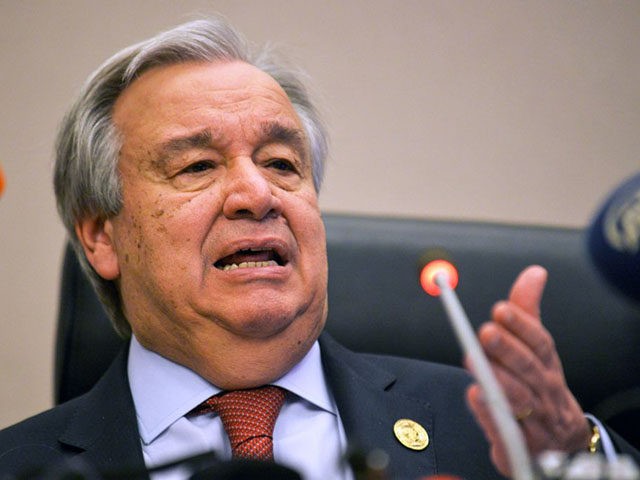United Nations Secretary-General António Guterres said Saturday that religious freedom is “a cornerstone for inclusive, prosperous and peaceful societies.”
In his Message for the second International Day Commemorating the Victims of Acts of Violence Based on Religion or Belief, the secretary-general said that while freedom of religion is “firmly trenched in international human rights law,” still, across the world, “we continue to witness deep-seated discrimination against religious minorities, attacks on people and religious sites, and hate crimes and atrocity crimes targeting populations simply because of their religion or belief.”
In 2019, the U.N. General Assembly, in its resolution A/RES/73/296, designated August 22 as the International Day Commemorating the Victims of Acts of Violence Based on Religion or Belief, “recognizing the importance of providing victims of acts of violence based on religion or belief and members of their families with appropriate support and assistance in accordance with applicable law.”
At that time, the U.N. also said it “strongly deplored all acts of violence against persons on the basis of their religion or belief, as well as any such acts directed against their homes, businesses, properties, schools, cultural centres or places of worship, as well as all attacks on and in religious places, sites and shrines that are in violation of international law.”
In his statement Saturday, Guterres said that while society has shown resilience and strength in the face of COVID-19, “the pandemic has also been accompanied by a surge in stigma and racist discourse vilifying communities, spreading vile stereotypes and assigning blame.”
The United Nations has come under fire for allowing one of the worst state perpetrators of violations of religious freedom — namely China — to sit as a permanent member on its Security Council. China has used its influence in the Security Council to protect its ally Iran, another egregious human rights violator.
China was also widely criticized for its handling of the Wuhan coronavirus and its failure to warn the world opportunely of the dangers of the pandemic.
As we commemorate the victims, “we must do more to address the root causes of intolerance and discrimination by promoting inclusion and respect for diversity,” Guterres said Saturday. “We must also ensure that the perpetrators of these crimes are held accountable.”
“States have the primary responsibility to protect the right to freedom of religion and belief,” Guterres said. “I have also made this a priority through initiatives such as a Call to Action for Human Rights, a Strategy on Hate Speech and a Plan of Action to Safeguard Religious Sites.”
“This extraordinary moment calls on all of us to work together as one human family to defeat a disease and put an end to hate and discrimination,” he said.

COMMENTS
Please let us know if you're having issues with commenting.